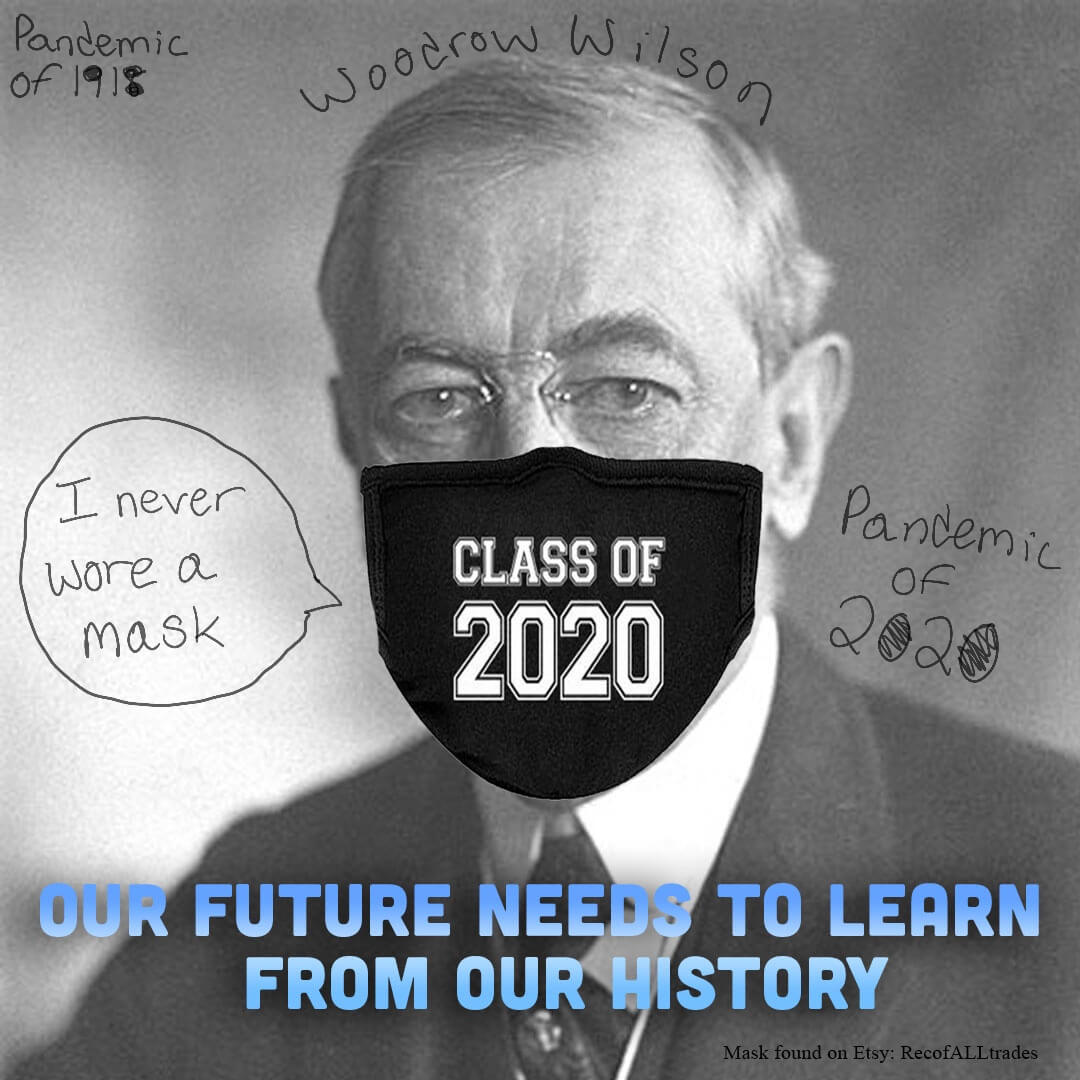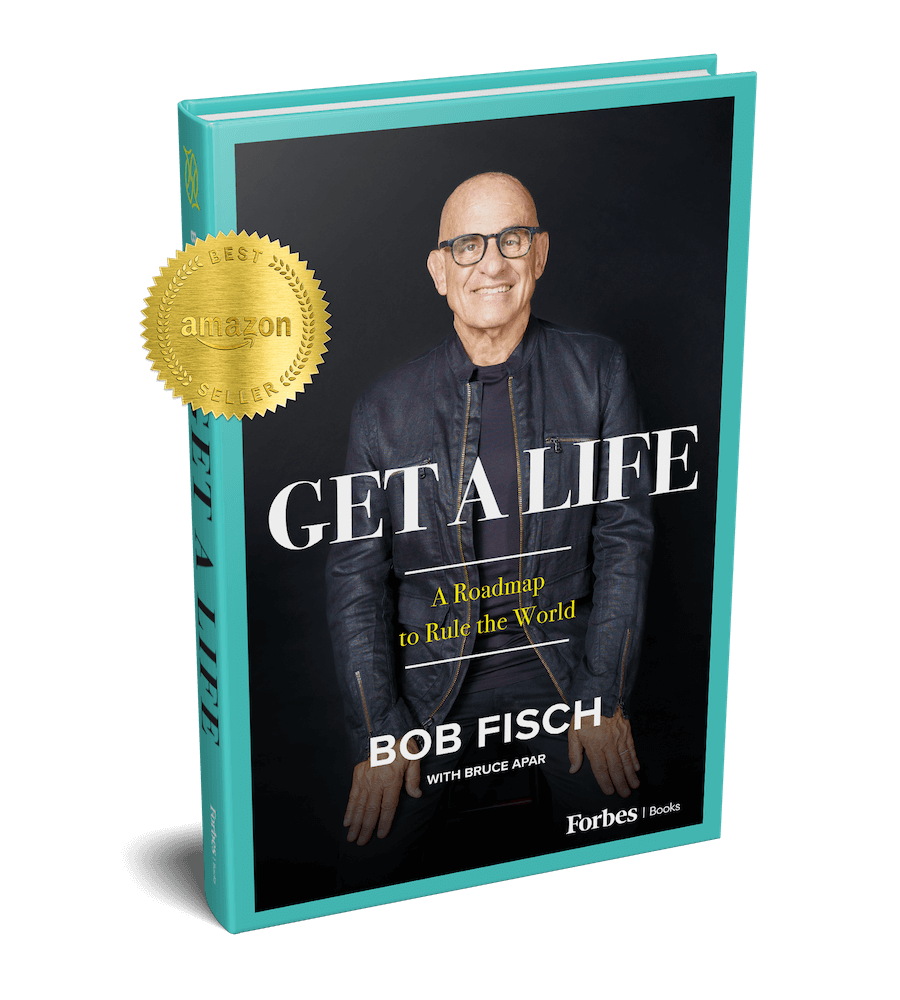It started in China.
It ravaged the entire United States for months upon months.
It devastated families who lost loved ones of all ages.
It was a violently divisive political year that fueled racial animus and even polarized Americans into mask-wearers versus mask-deniers.
It caused the country’s commander-in-chief to consider political ambition above public health.
It shut down businesses and caused financial insolvency for millions who suddenly found themselves among the “food insecure,” waiting on lines for basic rations to sustain themselves and their loved ones.
By now, you know I’m talking about the pandemic.
What you may not know is that I’m talking about the pandemic of 1918.
That raises this question — if so many of the terrible things we’ve been going through for the past year already happened more than 100 years ago to our ancestors, what have we learned from it?
Clearly, not nearly enough.
DEJA VU
The better question, though, is why didn’t we learn enough to prevent it from happening again? Why were we doomed to live through so many of the same dispiriting experiences as victims of the 1918 pandemic, which has been documented in great detail in books and elsewhere?
We need to pay closer attention to the past and what it teaches us. Not learning from history is an age-old problem, reaching back thousands of years, to biblical times. So what are we doing to learn from the past, to prepare for the next, inevitable crisis, which could be another pandemic years from now?
Think of the golden calf that the Hebrews worshipped as they waited for Moses to descend Mount Sinai after receiving from God the Ten Commandments.
Even though they knew full well how God rescued them from generations of slavery and led them out of Egypt with life-saving miracles — such as crossing the same Red Sea that swallowed their opponents whole — the Hebrews chose to forsake their faith in the Lord and paid for their arrogance with their lives.
NO PATIENCE
Some things don’t change. A sizable portion of the population remains short on patience and discipline, even for the most minor sacrifices, like wearing a mask, or minimizing exposure in social settings close to other bodies, which become super-spreader events by transmitting the virus across a short span of space.
The same people who expect doctors and scientists to cure them of sickness suddenly decide to distrust those same doctors and scientists when the proven prescription is to cover your face in public and keep your distance. There’s no logic to their self-contradictory behavior.
Plainly put, they are not the type of people you can rely on to have your back in a crisis. They’re strictly in it for themselves, despite the evidence that, when managing the spread of Covid-19, an ounce of prevention is worth of a pound of cure. That’s as true today as it was in 1918.
INSTRUCTIVE HISTORY
Respecting historical precedents to avoid past mistakes applies as well to crises in business and in other areas of life.
With so much evidence available from the recorded experience of those who came before us, what is it that prevents us from taking advantage of that instructive history to make a better future for ourselves, and for our descendants? It’s inexcusable laziness.
It’s not as if there isn’t a great deal of knowledge that has been collected about the 1918 Spanish flu, which killed an astounding 50 million people worldwide. Equally hard to process today is that the deadly 1918 flu infected 500 million, nearly one-third of the world’s population at the time.
That’s more deaths in the 24 months of the 1918 pandemic than the number of people who perished in 24 years from AIDS, as John Barry cites in his 2004 book, The Great Influenza: The Story of the Deadliest Plague in History.
STRIKING SIMILARITIES
The similarities between then and now are striking, to say the least.
Under President Woodrow Wilson, the American public was kept in the dark about the fast-spreading disease that followed World War I. A century later, another U.S. President would manage the novel coronavirus from the same playbook as Wilson.
Except this time, because of mass media that didn’t exist in 1918, the public became aware, from other sources, including government data, that the pandemic would become progressively worse than the misleading information that, at first, was being spread — like the virus itself — during White House press conferences.
There was talk at one point of the U.S. practicing herd immunity, where people willingly contract the virus in the belief it will make help speed mass immunity and the virus will be over sooner.
That idea was loudly endorsed by Florida Gov. Ron DeSantis. He pointed to Sweden’s use of herd immunity. The strategy was backed by Sweden’s prime minister, who soon had to back away from it because the experiment backfired, with the death rate soaring and his popularity plummeting. Herd immunity in Sweden was called “a preventable disaster.”
TESTING MISHANDLED
Even with the 1918 pandemic in our rear-view mirror as a roadmap, the program in the U.S. for testing people for the coronavirus was generally mishandled, without enough urgency, which would have allowed those infected to be quarantined sooner, slowing the spread.
“The final lesson of 1918,” writes John Barry in his book, “is… the strongest weapon against the pandemic is the truth.” In 2020, along with millions infected and hundreds of thousands dying, hearing the truth from our leaders was another casualty of the pandemic.
The ebb and flow of the Spanish flu foreshadowed what we’ve experienced since March 2020 — with transmission slowing down during warmer months, then surging as fall turned to winter. It wasn’t only Dr. Fauci who correctly predicted that would happen. Scientists from 80-100 years ago said the same thing!
Not listening to the informed warnings of knowledgeable experts can come back to haunt us — just as the 1918-20 pandemic came back to haunt us with the 2020-21 pandemic.
POVERTY RISING
Conjuring tragic images of The Great Depression, which began a decade after the 1918 pandemic, as of June 2020, CNN reported, there were nearly 8 million additional Americans categorized as below the poverty line, and three times that number “were in households that sometimes or often experienced a lack of enough food to eat within the last seven days.”
It is inconceivable history would repeat itself to such an extent in our lifetime, but billionaire Ray Dalio, CEO of Bridgewater Associates, the world’s largest hedge fund, told CNN the U.S. is in a precarious position right now.
Two weeks after he said that, Dalio’s statement became an understatement, with the Jan. 6 attempted coup by domestic terrorists attacking the U.S. Capitol. It started to seem like we were on the brink of civil war, as Dalio warns. It still does feel that way, I’m sorry to say. Unless we do something about it. It’s a crisis the younger generations need to come to grips with right now.
PREDICTED RECESSION
Dalio should be listened to seriously. For one thing, he predicted the market crash of 2008 that led to a long-lasting recession.
What’s hard to understand, in Dalio’s view, as well as mine, is that, as he told CNN, “I don’t think there is a plan.”
That’s despite the fact that, as he adds, “I’ve studied the past 500 years of history in cycles and these things repeat over and over again. Large wealth gaps and values gaps produce vulnerability. Most important is bringing the country together because conflict is our biggest issue.” We need to restore the “united” in United States of America.
Solutions are not easy to come by, but the only way we’re going to find them is through bipartisan compromise. Compromise is not easy to come by, but, without it, we create for ourselves, and for future generations, a vicious cycle of class warfare and debilitating public health crises and economic stress. That’s a thoroughly irresponsible and dangerous legacy to leave our children and grandkids.
HEALTHY CO-EXISTENCE
If it’s difficult to convince people to do something as simple and reflexive as wearing a little mask, what does that say about our mutual willingness to live together productively and peacefully?
A mask doesn’t rob anyone of freedom any more than a seat belt does.
History repeats itself in other ways that don’t present threats but are worth noting nonetheless.
The electoral vote totals for the 2020 Presidential election — 306 vs 232 — matched exactly the vote totals for the 2016 contest, with the obvious exception that, this time, the party that won the most votes flipped from Republican to Democrat.
There are times history repeats itself in good ways, which is what I’m looking forward to in the next few years, as we emerge from the pandemic and try to mend our divisiveness with new energy and optimism and — most important — a sense of common purpose, to celebrate America’s greatness and uniqueness.
That’s not going to happen, though, unless we learn from the past, and plan ahead to shape our future instead of reacting to it — too late.
As I’ve written about before in this blog, let’s all work together to repeat only good things from the past, as we bring on another Roaring ‘20s!

